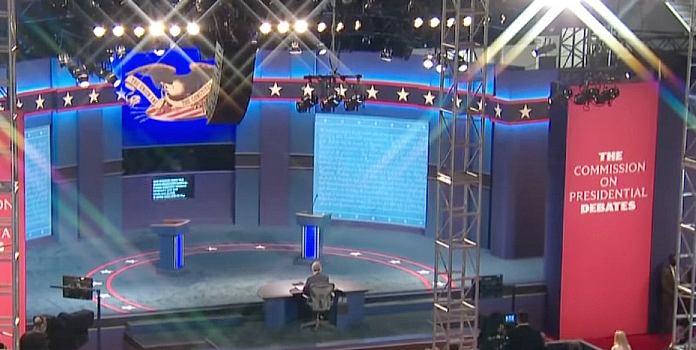(Headline USA) With six weeks until the first 2024 Republican presidential debate, lesser known Republican candidates are finding creative ways to boost their donor numbers and ensure they make it on stage.
Biotech entrepreneur Vivek Ramaswamy, who is quickly closing in on second-place contender Ron DeSantis in some polls, rolled out a plan to let people who raise money for his campaign keep 10% of what they take in from other donors.
North Dakota Gov. Doug Burgum is offering $20 Mastercard or Visa gift cards in return for campaign donations of as little as $1.
Businessman Perry Johnson is offering copies of his book in exchange for donations.
The unusual efforts are in response to a Republican National Committee requirement that participants in the Aug. 23 debate in Milwaukee raise money from at least 40,000 donors across the country. That’s a tall task for some of the hopefuls who aren’t as well known as former President Donald Trump or Florida Gov. Ron DeSantis.
It’s a recognition of the make-it-or-break-it opportunity that the debate stage provides for lower-tier candidates in a large field who need media exposure to share their message and reach voters.
Dan Weiner, an attorney who directs the far-left Brennan Center for Justice’s Elections and Government Program, said “unorthodox fundraising” tactics are becoming more common, noting that candidates are trying new things with the knowledge that the Federal Election Commission could take action if legal or ethical concerns were raised.
“More often than not, these do at least sometimes raise questions about whether they’re skirting at the edge of the law,” Weiner said. “In both instances, do I necessarily think that the FEC is going to do anything about it? Maybe, but I’d be a little bit skeptical.”
On Monday, Ramaswamy — who launched his campaign with a $10 million infusion of his own cash and said he surpassed the unique donor threshold in June — introduced the “Vivek Kitchen Cabinet,” a plan that he said would “democratize” the fundraising process by letting fundraisers keep 10% of what they bring in for him.
“Why should it be some member of some managerial class that’s a secreted, closeted group of fundraisers, in the cloistered world of politics?” Ramaswamy asked in a video posted on Twitter. “It shouldn’t be.”
As of Tuesday, Ramaswamy’s campaign said more than 1,000 people had signed up for the program, which hires people as independent contractors subject to compliance with FEC regulations, according to the campaign’s website.
Burgum, a wealthy former software entrepreneur now in his second term as North Dakota’s governor, announced a program Monday to give away gift cards — “Biden Relief Cards,” as a critique of President Joe Biden’s handling of the economy — to as many as 50,000 people, just over the minimum donor threshold.
Campaign spokesperson Lance Trover said the effort “allows us to secure a spot on the debate stage while avoiding paying more advertising fees to social media platforms who have owners that are hostile to conservatives.” The campaign said it could reach its 50,000-card maximum by the end of the weekend.
Paul S. Ryan, a campaign finance attorney who has worked for nonprofit watchdog groups like Common Cause, said Burgum’s reimbursement framework seems to be a clear violation of campaign finance law.
“Burgum’s contributing to his own campaign using the names of the people who opt into his gift card scheme,” Ryan said. “All of these gift card recipients are straw donors.”
Burgum’s campaign said its legal advisers had reviewed and approved the fundraising mechanism. The FEC said in a statement Friday that it wouldn’t comment on the legality of Burgum’s plan.
Johnson, a wealthy but largely unknown businessman from Michigan, announced last month that he would be giving copies of his book “Two Cents to Save America” — which retails for $20 — to anyone who donated to his campaign.
Adapted from reporting by the Associated Press

